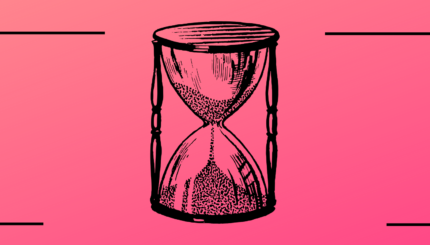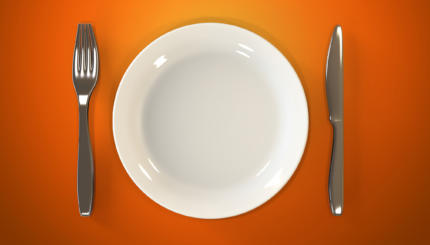You may have heard stories at your school about teens who try to lose weight by vomiting after meals or eating way too few calories—like a nibble of bread for lunch. Maybe you’ve seen peers fall into the trap of obsessively trying to lose weight even though they look too thin already, or have friends who hate their appearance. Maybe even you struggle with negative thoughts about your body and worry about your weight and whether you eat too much. These feelings and behaviors aren’t uncommon among teens (and adults, too), but they’re definitely not healthy. In their most serious form, they make up the multi-faceted condition known as an eating disorder—and they have serious health consequences. Here’s what you should know:
What Is an Eating Disorder?
According to the National Eating Disorder Association (NEDA), there are several kinds of eating disorders. The most common, Anorexia Nervosa, is defined by severely restricting food intake and having too low of a body weight for your height. Teens who suffer from this condition fear gaining weight, often have a poor self-image, and follow a rigid diet. Often, teens who are anorexic feel as though they need to lose more weight, even though they are at or below a healthy number on the scale already.
Other types of eating disorders include Bulimia Nervosa, a condition where someone eats large amounts of food then engages in a purging behavior, like vomiting. Teens suffering from bulimia may have a distorted body image and feel out of control while bingeing, but believe their behavior is a successful way to lose weight or keep from gaining. Binge Eating Disorder is a condition that involves frequently eating large amounts of food at once without purging. Sufferers may feel out of control and have shame or guilt while eating.
Both guys and girls can suffer these three types of eating disorders, and teens and young adults suffer these disorders at a disproportionately high rate. In fact, the Healthy Teen Project, a San Francisco-based adolescent eating disorder treatment center, says 95 percent of people with eating disorders are between ages 12 and 25.
Signs of an Eating Disorder
Complicated illnesses with both physical and mental components, eating disorders can be treated—but first you have to know how to spot the symptoms of one in yourself or a friend. Angela Wurtzel, MA, LMFT, CEDS, a certified eating disorder specialist with the International Association for Eating Disorder Professionals, says to look out for these signs:
- Over-monitoring yourself: Repeatedly looking in the mirror and focusing on one area of concern; weighing yourself several times a day; feeling for a “flat” stomach, particularly after a meal; obsessing over your body shape based on how clothing looks and fits.
- Overemphasizing beauty: Using appearance as a gauge for popularity; idealizing the body size of models and celebrities who have unrealistically thin figures.
- Eliminating foods: Creating “good” and “bad” food groups; feeling agitated and angry when your way of eating is interrupted or questioned.
- Avoiding body exposure: Wearing clothes that hide your body; skipping activities like the beach or swimming that show your body.
- Making excuses: Avoiding situations that involve food like parties or family dinners; lying about how much food you’re eating.
- Engaging in rituals: Eating foods in a certain order; chewing excessively; rearranging the food on your plate.
- Behaving in harmful ways: Eating excessively; abusing laxatives; inducing vomiting; refusing to eat; exercising obsessively.
How to Get Help
The good news is that eating disorders can be successfully treated, says Gayle Pitman, Ph.D., a professor of psychology at Sacramento City College. This often involves an outpatient program that provides comprehensive services with doctors, nutritionists, and psychologists. In some cases, an inpatient treatment program can be the best way to help someone get healthy again. If you or someone you know is thinking about getting professional help, here’s what you can expect:
- A complete medical evaluation. It’s common for teens with anorexia or bulimia to suffer from electrolyte imbalances, severe vitamin and mineral deficiencies, cardiac issues, and bone or tooth loss. A girl’s menstruation may also stop. A doctor can assess the situation and help come up with a recovery plan.
- A nutrition consultation. A major treatment goal involves helping the sufferer maintain healthy and regular eating habits. A nutritionist who specializes in eating disorders can develop a food plan that will restore necessary nutrients and achieve healthy weight gain, particularly for teens with anorexia.
- Talk therapy. Sharing your feelings with a trained counselor can be really helpful—especially when it feels like no one understands what you’re going through. Also, sometimes teens with eating disorders have other mental health challenges like depression, anxiety, or family problems. One-on-one counseling or structured group therapy (talking among a group of teens who also have an eating disorder) can help you see that you’re not alone.
What Next?
If a friend is showing worrying signs of an eating disorder and you feel comfortable talking to them about it, gently express your concern and try to engage in a conversation about what’s going on. “Most people have shame around their eating disorder,” says Melainie Rogers, RDN, CEDRD, a certified eating disorder dietitian with the BALANCE eating disorder treatment center in New York City. “So don’t be surprised if they deny that there is a problem at first.” If you are uncomfortable trying to bring it up with your friend or if talking isn’t working, reach out to their family or another trusted adult. Although you might feel as though you’re “telling” on your buddy, speaking up is the right thing to do: Your friend’s health may be at risk, so it’s better to say something than to keep quiet and hope the problem goes away.
If you’re worried about your own eating habits and the negative thoughts you’re having about your body, reach out to a trusted teacher, your Rabbi, or a family member. Don’t overthink it: Just tell them you’ve been struggling to eat right and you are feeling pretty down on yourself. Let them know that you want to feel better but you need advice on how to do it. They’ll understand, and you’ll have taken the first and most important step to getting healthy: Asking for help.
Special thanks to our experts:
Gayle E. Pitman, Ph.D. Professor of Psychology at Sacramento City College
Melainie Rogers, MS, RDN, CDN, CEDRD Certified Eating Disorder Registered Dietitian with BALANCE eating disorder treatment center in New York City
Angela R. Wurtzel, MA, LMFT, CEDS, Certified Eating Disorder Specialist with the International Association for Eating Disorder Professionals






